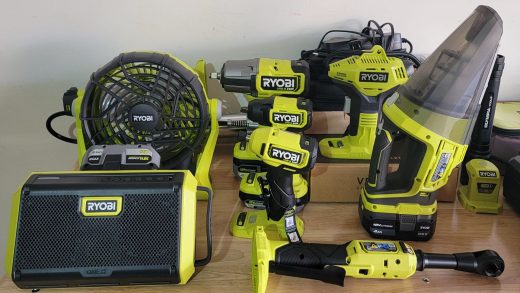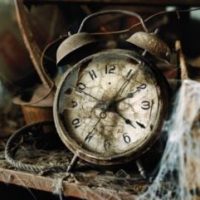Last December, with some hesitation, I posted a personal essay I’d written for Racquet Magazine on Facebook, Twitter, and Instagram. The piece examined why Serena’s retirement from professional tennis, in order to have another child, had prompted an existential crisis for me. Serena and I are both 41, and her sadness around the word “retirement” echoed my own sadness around the word “motherhood.” While I came to no firm conclusions, I ended the essay suggesting that my husband and I would likely not have children, given my age and our ambivalence, despite family and social pressures to reproduce.
One week after posting the article, I found out I was pregnant.
I knew I would be okay without kids, even if a twinge of sadness remained.
I had initially written the piece in early August, when Alejandro and I were still in the will-we-won’t-we throes of removing my IUD and playing pregnancy roulette. Writing the piece felt like finding solid ground after trudging through a steaming, buggy, couples-therapy swamp. After finishing it, I knew I would be okay without kids, even if a twinge of sadness remained. Still, in September, that very twinge led me to remove the IUD and roll the dice. We decided we would try for six months, a year at most, and then pat ourselves on the backs.
When I posted the article, a week before Christmas, I was smarting from all the photos of young families on Facebook, and what I knew would be the inevitable round of questions about my childbearing desires at holiday parties. I captioned each post as a semi-manifesto. On Instagram, I wrote “As a childless woman at 41, I’m constantly fielding inappropriate questions from total strangers about having kids. It was healing to find my truth on the page instead of stammering something at a cocktail party.” On Facebook: “There’s a lot of pressure on women to not just have kids but to unequivocally want to be a mother. In this time of holiday cards and families posing together, I’m sending love out to those women who are on the fence and whose photos might look way different.” And on Twitter, I leaned even more provocative: “When a woman feels new life stirring inside, does it always have to be a baby?”
I felt like I had made some sort of declaration, that I had finally side-stepped the pitying looks from mothers when I said I didn’t have kids. But what had I declared, exactly? By claiming temporary childlessness (which is so often treated as temporary insanity), I had simply admitted that I didn’t know what I wanted, but I was tired of feeling ashamed. In the days after posting, I basked in the glow of my friends’ praise and congratulations, for another creature I had birthed: my essay. I made plans with an acquaintance I met in Spanish lessons to grab a drink in the new year and talk more about the subject. She, too, had huge doubts about having kids, even though she was ten years younger, and had been relieved to find companionship in my essay.
I’ve avoided setting up that meeting with my Instagram friend, worried she’ll see me as a hypocrite, a lost ally.
But holding the positive pregnancy test in the bathroom a few days later, even before going down to tell Alejandro, among the waves of excitement, fear, dread, and joy, I felt that old stand-by, shame. I had just gone on the record as (probably) not having kids. Now I was switching sides? And, indeed, the first person we told, Ale’s sister, after shrieking and congratulating him, asked: But what about the article?
What about the article?
In the weeks since, as I’ve found myself repeating my justification, which is nothing but a shrug, it’s made me think about the nature of personal essays as both truth-seeking and deeply contemporary: they land somewhere, for a moment. Perhaps, for the writer, that moment will stretch to the end of their life. Perhaps, as with me, the truth of that moment will be disrupted by another emerging truth, one week later. I’ve avoided setting up that meeting with my Instagram friend, worried she’ll see me as a hypocrite, a lost ally. I’ve felt similarly disheartened when childless female friends have changed their minds. It can look, from the outside — and feel, from the inside — like you caved.
It doesn’t feel like you’re allowed to say that a miscarriage may come, in some small manner, as a relief.
But what if truth is always carving its way in us, rather than blowing us up like a balloon? So far, my seven and a half weeks of pregnancy have been horrible. Constant nausea and exhaustion, among other digestive mishaps I won’t gross you out with. Yesterday, at my first ob-gyn appointment, the ultrasound revealed that one reason for my extreme discomfort is that I am carrying twins—but one appears to be vanishing, a smaller sibling with a slower heartbeat that will likely not survive.
Having lost my only younger sister, staring at those two pulsing sacks on the screen felt like a grotesque parallel to my own tragedy, nearly thirty years ago. It’s called “vanishing twin syndrome,” and most women don’t even know that they are carrying another twin, which is absorbed into the placenta. Next week, I will go back for another ultrasound, to check the viability of both embryos.
What do I want now? I don’t know. Part of me yearns for the smaller one to make it, even though I am terrified by the idea of twins. I will also be relieved to see that the healthy embryo is newly solitary there, blinking its heartbeat at me. And, wrenching as it is to say, I will also be okay if I emerge from pregnancy without a child, even though I know I will still grieve. I am still that woman who wrote that essay about her ambivalence, and her more extreme inner sister, the one who never wanted children. In America, as a pregnant woman who has decided to go through with the pregnancy, it doesn’t feel like you’re allowed to say that a miscarriage may come, in some small manner, as a relief. Especially when you have that thought in Texas.
For the next week, and the next weeks, I will not know what fate has in store for the scant beings within. That, too, is like the truth. It emerges and recedes. It dawns and dreams and dims, just like consciousness. Personal essays are the ultrasounds of our psyches, a blurry image that is both illuminating and limited in what it can promise and predict. My thoughts and my heart and my embryos are where they are right now. Next week, we will be somewhere entirely new.
The post I Learned I Was Pregnant Right After Publishing An Essay About Not Having Kids appeared first on Electric Literature.
Source : I Learned I Was Pregnant Right After Publishing An Essay About Not Having Kids













